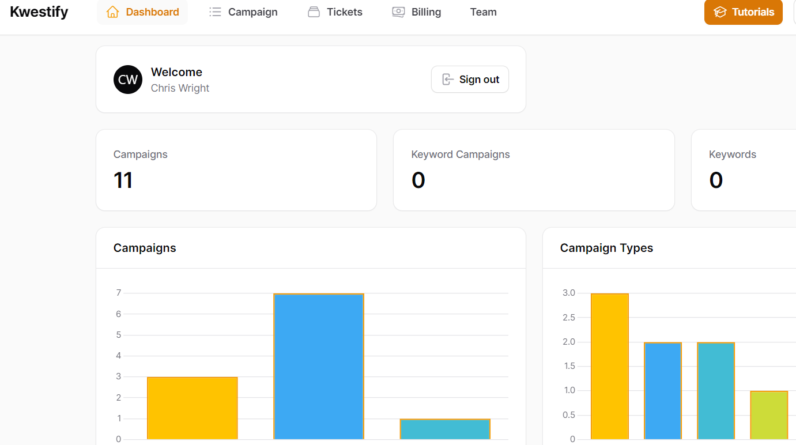
Building and maintaining strong relationships with affiliate partners can be a crucial aspect of running a successful business. You understand the importance of collaboration and want to make the most out of these valuable connections. With this in mind, it’s essential to consider various strategies and approaches to effectively manage your relationships with affiliate partners. By establishing clear communication channels, providing ongoing support, and fostering a sense of trust and transparency, you can strengthen these partnerships for mutual growth and success. Managing relationships with affiliate partners is crucial for the success of your affiliate marketing program. It requires setting clear expectations, building strong communication channels, offering competitive commission rates, providing marketing support, ensuring transparency, building trust and loyalty, managing disputes and conflicts, continually evaluating performance, staying updated with industry trends, and complying with legal and ethical requirements. By following these steps, you can establish and maintain mutually beneficial relationships with your affiliate partners.
Setting Clear Expectations
Clearly define roles and responsibilities
To successfully manage relationships with affiliate partners, you need to clearly define roles and responsibilities from the start. Clearly outline what is expected of each party, including the affiliate partner’s responsibilities, such as promoting your products or services, and your responsibilities, such as providing support and timely commission payments. By establishing these clear expectations, both parties can understand their roles and work together towards shared goals.
Establish performance benchmarks and goals
Setting performance benchmarks and goals is essential for measuring the success of your affiliate program. Clearly define key performance indicators (KPIs) such as the number of referrals, conversion rates, or revenue generated, and communicate these goals to your affiliate partners. By having specific targets in place, you can motivate your affiliates to perform at their best and align their efforts with your overall business objectives.
Communicate expectations and guidelines
Open and effective communication is vital for managing relationships with affiliate partners. Regularly communicate with your affiliates to ensure they understand your expectations and guidelines. Clearly communicate any branding or messaging requirements, promotional restrictions, or other guidelines they need to follow. Providing this clarity upfront can help prevent misunderstandings and ensure that your affiliates promote your products or services in a way that aligns with your brand image.
Building Strong Communication Channels
Regularly communicate with affiliate partners
Maintaining regular communication with your affiliate partners is essential for a successful relationship. Provide them with updates on new products, promotions, or any changes to your program. Regularly check in to address any questions or concerns they may have. By fostering open lines of communication, you can build trust and strengthen your relationship with your affiliates.
Use various communication platforms
To accommodate different communication preferences, it’s important to use various communication platforms. While email is commonly used for formal communication, consider using instant messaging or video conferencing for more immediate or personal discussions. By offering different communication options, you can cater to the preferences of your affiliates and ensure effective and efficient communication.
Provide timely and constructive feedback
Offering timely and constructive feedback can help your affiliates improve their performance and feel supported. Regularly review their promotional efforts and provide feedback on what is working well and areas for improvement. Be specific in your feedback and offer suggestions on how they can optimize their promotions. By providing constructive feedback, you can help your affiliates achieve better results and strengthen their bond with your program.
Offering Competitive Commission Rates
Research industry standards and competitors’ offerings
To attract and retain high-quality affiliates, it’s crucial to offer competitive commission rates. Conduct research to understand the industry standards and what your competitors are offering. By offering rates in line with or higher than the market average, you can motivate affiliates to choose your program over others and feel adequately compensated for their efforts.
Regularly evaluate and adjust commission rates
Commission rates should not be set in stone. Regularly evaluate the performance of your affiliates and assess whether your commission rates are fair and competitive. If you find that your affiliates’ efforts are not yielding satisfactory results, consider adjusting the rates to incentivize them further. Likewise, if you have high-performing affiliates, you may want to consider offering them higher commission rates as a reward for their success.
Incentivize high-performing affiliates
Recognizing and rewarding your high-performing affiliates can help strengthen the relationship even further. Consider offering additional incentives such as bonuses, tiered commission structures, or exclusive promotions for affiliates who consistently deliver exceptional results. By providing these extra rewards, you can motivate your top performers to continue promoting your products or services and foster a sense of loyalty towards your program.
Providing Marketing Support
Offer a range of promotional materials
To support your affiliate partners in their promotional efforts, provide them with a range of marketing materials. This can include banners, text links, social media templates, product images, or videos. By offering a variety of materials, you cater to different promotional channels and make it easier for affiliates to promote your products or services effectively.
Assist with content creation and optimization
Content creation plays a significant role in affiliate marketing. Offer assistance to your affiliates with content creation and optimization. Provide them with guidelines on how to craft compelling content and optimize it for search engines. Offer suggestions on keywords to target or provide access to keyword research tools. By supporting your affiliates in content creation, you can help them attract more traffic and improve their conversions.
Share industry insights and trends
Stay proactive in sharing industry insights and trends with your affiliates. As an expert in your field, you have valuable knowledge that can benefit your partners. Share market trends, consumer preferences, or upcoming product launches that could help them tailor their promotions. By providing this information, you demonstrate your commitment to their success and reinforce the value of your relationship.
Ensuring Transparency
Provide regular reporting and analytics
Transparency is crucial for building trust with your affiliate partners. Provide regular reports that outline their performance, including the number of referrals, sales generated, and commissions earned. These reports should provide comprehensive analytics and be accessible and easy to understand. Sharing this information regularly demonstrates transparency and allows affiliates to track their progress and make data-driven decisions.
Share performance metrics and analysis
In addition to regular reporting, share performance metrics and analysis with your affiliates. Provide insights into what promotional strategies are working well and which ones may need adjustment. Share information on conversion rates, average order value, or any other relevant metrics. By sharing this analysis, you empower your affiliates to optimize their promotions and achieve better results.
Address any concerns or issues promptly
If an affiliate raises concerns or issues, it’s crucial to address them promptly. Take their feedback seriously and work together to find solutions. Whether it’s a technical issue or a disagreement over commissions, handle the situation with professionalism and empathy. By addressing concerns promptly, you demonstrate your commitment to maintaining a healthy and collaborative relationship.
Building Trust and Loyalty
Cultivate personal relationships with affiliate partners
To build trust and loyalty, cultivate personal relationships with your affiliate partners. Take the time to get to know them on a personal level, learn about their goals and aspirations, and understand their motivations. Show genuine interest in their success and offer support and guidance whenever needed. By developing a personal connection, you create a stronger bond that goes beyond business transactions.
Offer exclusive opportunities and incentives
Make your affiliates feel special by offering exclusive opportunities and incentives. This can include early access to new products or promotions, priority support, or invitations to industry events. By providing these exclusive benefits, you make your affiliates feel valued and appreciated, enhancing their loyalty to your program.
Recognize and reward top performers
Celebrating the successes of your top-performing affiliates is essential for building trust and fostering loyalty. Implement a system to recognize and reward their achievements, whether through public acknowledgment, special incentives, or even contests. By highlighting their success, you not only motivate them to continue performing at their best, but you also inspire others to strive for excellence.
Managing Disputes and Conflict
Resolve issues through open and honest communication
Disputes and conflicts are bound to happen from time to time. When they do, prioritize open and honest communication to resolve them. Encourage both parties to express their concerns, actively listen to each other’s perspectives, and work together towards a mutually beneficial solution. By fostering a climate of open communication, you can prevent conflicts from escalating and find resolutions more effectively.
Establish a clear dispute resolution process
To manage disputes effectively, establish a clear dispute resolution process. Clearly communicate how issues should be raised, who will be involved in the resolution process, and the expected timeline for resolution. Having a structured process in place ensures that all parties know what to expect and allows for a fair and objective assessment of the situation.
Seek mediation or arbitration if necessary
In some cases, disputes may not be easily resolved through direct communication. If this occurs, consider seeking mediation or arbitration to facilitate a resolution. These third-party services can provide an unbiased perspective and help find a mutually agreeable solution. Mediation or arbitration can be an effective way to salvage the relationship with an affiliate and prevent further escalation.
Continually Evaluating Performance
Regularly review affiliate performance
Continually evaluating affiliate performance is crucial for the success of your program. Regularly review their performance against the established goals and KPIs. Identify affiliates who consistently underperform and assess whether they are the right fit for your program. Likewise, identify high-achieving affiliates and seek opportunities to further nurture and grow those relationships.
Analyze ROI and conversion rates
Measuring the return on investment (ROI) and conversion rates of your affiliates is essential for making data-driven decisions. Analyze the revenue generated by each affiliate and compare it to the resources invested in the program. Identify affiliates who deliver a positive ROI and focus on strategies to amplify their success. Simultaneously, analyze conversion rates to understand which affiliates are driving the most valuable traffic. This analysis allows you to allocate your resources effectively and optimize your program for maximum profitability.
Adjust strategies and partnerships accordingly
Based on your performance evaluations, adjust your strategies and partnerships accordingly. If certain promotional channels or affiliates are consistently underperforming, consider reallocating resources or seeking alternative partnerships. Invest more in successful strategies and affiliates to maximize the return on your investment. Continually monitor and adapt to market trends and changes, ensuring that your program remains competitive and effective.
Staying Updated with Industry Trends
Follow industry news and developments
To stay ahead in affiliate marketing, it’s essential to follow industry news and developments. Keep yourself informed about emerging trends, new technologies, or changes in consumer behavior. Stay updated on what your competitors are doing and learn from their successes and failures. By staying informed, you can make informed decisions and adapt your strategies to stay relevant in the ever-changing affiliate marketing landscape.
Attend relevant conferences and events
Attending conferences and events related to your industry and affiliate marketing is a great way to stay updated with the latest trends and network with industry experts. These events provide valuable insights, educational opportunities, and networking possibilities. Gain inspiration from keynote speakers, participate in workshops, and engage in conversations with fellow marketers. By attending relevant events, you can gain a competitive edge and forge valuable connections within the industry.
Adapt strategies to emerging trends
Once you are aware of emerging trends and developments, it’s vital to adapt your strategies accordingly. Identify how these trends impact your target audience and adjust your promotional tactics to leverage new opportunities. For example, if influencer marketing is gaining traction in your industry, explore partnerships with relevant influencers to expand your reach. By adapting your strategies to emerging trends, you can stay ahead of the competition and ensure the long-term success of your affiliate program.
Complying with Legal and Ethical Requirements
Understand and adhere to affiliate marketing regulations
Affiliate marketing is subject to various regulations and legal requirements. Familiarize yourself with these regulations and ensure that your program complies with them. Be aware of guidelines regarding disclosure, advertising claims, and consumer protection laws. Educate your affiliates on these regulations and monitor their compliance. By conducting your affiliate program in a legal manner, you protect your brand reputation and build trust with your affiliates and customers.
Ensure compliance with FTC guidelines
The Federal Trade Commission (FTC) has specific guidelines regarding transparency and disclosure in affiliate marketing. Ensure that you and your affiliates understand and follow these guidelines. Clearly communicate the need for disclosure of affiliate relationships and ensure that your affiliates clearly disclose their promotional efforts. By complying with FTC guidelines, you demonstrate ethical practices and maintain trust with your audience.
Maintain ethical practices and transparency
Ethical practices and transparency should be the foundation of your affiliate marketing program. Avoid deceptive or misleading advertising tactics and communicate honestly with your affiliates and customers. Disclose any relevant information or conflicts of interest. By maintaining ethical practices and transparency, you establish credibility and build lasting relationships with your affiliate partners and customers.
Managing relationships with affiliate partners requires a proactive and strategic approach. By setting clear expectations, building strong communication channels, offering competitive commission rates, providing marketing support, ensuring transparency, building trust and loyalty, managing disputes and conflicts, continually evaluating performance, staying updated with industry trends, and complying with legal and ethical requirements, you can cultivate mutually beneficial relationships that drive the success of your affiliate marketing program.






